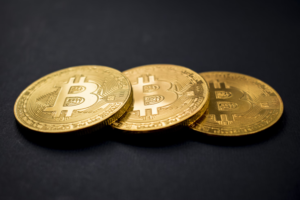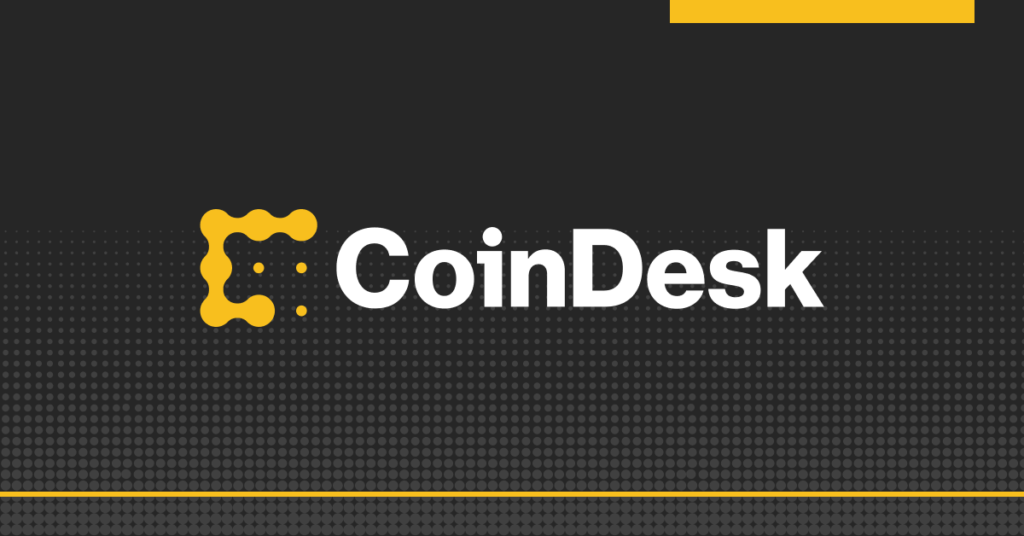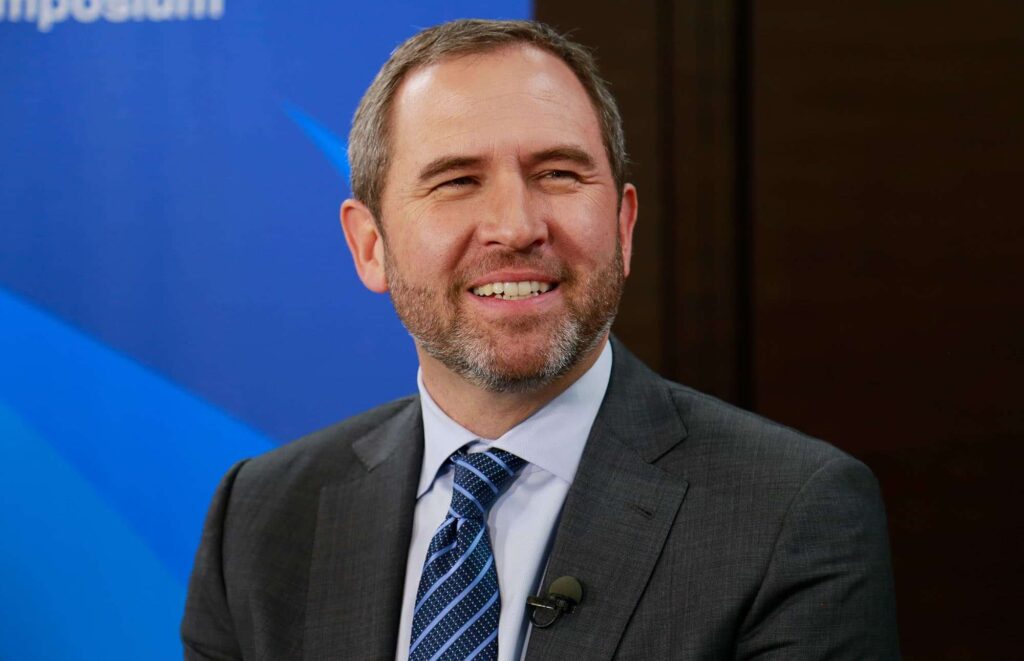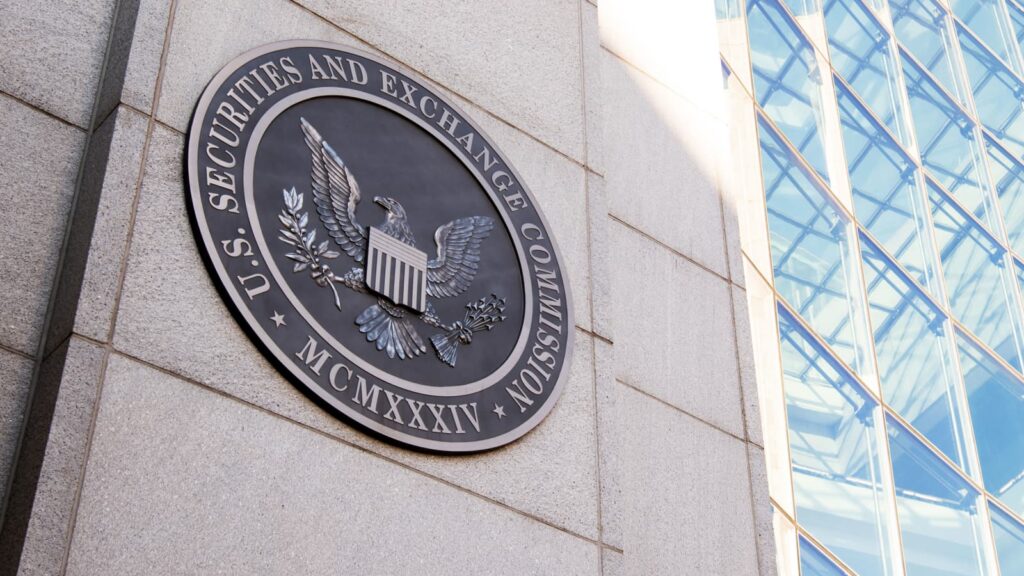TRM Labs, a blockchain intelligence platform, recently released a report drawing attention to the increasing use of cryptocurrency by affiliates of the Islamic State of Iraq and Syria (ISIS) in various Asian countries.
The report, published on July 21, revealed mounting on-chain evidence indicating that pro-ISIS networks in Tajikistan, Indonesia, and Afghanistan have been leveraging cryptocurrency to facilitate their operations.
The majority of transactions involved in these cases were found to be linked to the use of Tether (USDT) on the Tron network.
This finding aligns with a presentation by Tara Annison, former head of technical crypto advisory at Elliptic, who emphasized that Tron and Tether were popular assets for illicit activities, with criminals moving away from Bitcoin in favor of stablecoins due to their deep liquidity and ease of use for laundering funds.
The report shed light on individuals using Indonesian-based exchanges to transfer funds to addresses associated with pro-ISIS fundraising campaigns in Syria.
An astonishing amount of over $517,000 was sent in 2022 from Indonesia to addresses linked to pro-ISIS campaigns in Syria.
These campaigns purportedly claimed that the funds were meant to support and help release ISIS families held in Syrian camps. Interestingly, all transfers were made using USDT on the Tron network in increments of $10,000.
TRM Labs also uncovered an instance in Tajikistan where cryptocurrency was utilized to recruit fighters for ISIS’s affiliate in Afghanistan.
One of the fundraising campaigns, active for more than a year, received approximately $2 million in USDT on the Tron network in 2022.
Through blockchain tracing, TRM Labs identified the flow of funds and alerted the exchange used by the group to cash out their funds, leading to the arrest of a senior ISIS fundraiser, Shamil Hukumatov, by Turkish authorities on June 22.
READ MORE: Nigerian Social Payments App Bundle Ceases Crypto Exchange Services
Additionally, a media unit connected to ISIS’s affiliate in Pakistan began promoting its ability to accept donations in cryptocurrency in the second half of 2022.
TRM Labs identified addresses controlled by the group with a total volume of around $40,000 over the past twelve months.
This report comes after a previous TRM Labs’ report on June 28, which revealed a significant decline in illicit finance volume involving Bitcoin over the last seven years.
While Bitcoin was once the exclusive currency for terrorist financing, by 2022, Tron had taken the lead, being used for 92% of terrorist financing cases.
These findings underscore the need for continued vigilance and regulatory efforts to monitor and address the misuse of cryptocurrencies by criminal and terrorist organizations.
By understanding and tracking these on-chain connections, authorities can take appropriate actions to disrupt illicit activities and safeguard the integrity of the cryptocurrency space.
Other Stories:
OpenAI Unveils Android Version of ChatGPT
Bitcoin Laundering Couple Reach Plea Agreement with U.S. Authorities
A group of investors is set to gain control of CoinDesk, a prominent media company focused on cryptocurrency.
Led by Matthew Roszak from Tally Capital and Peter Vessenes from Capital6, the investor syndicate aims to finalize the transaction in the upcoming weeks, as reported by The Wall Street Journal (WSJ) on July 20.
Digital Currency Group (DCG), the parent company of CoinDesk, will retain a stake in the media business, events, data, and indexes, valuing the pending deal at approximately $125 million.
DCG had acquired CoinDesk in 2016 for $500,000 but recently faced financial challenges due to the bankruptcy of its lending arm, Genesis Global Capital, along with the closures of its institutional-trading platform Tradeblock and wealth-management unit HQ.
These issues occurred amidst a broader downturn in the crypto industry, marked by successive bankruptcies and a significant drop in token prices last year.
READ MORE: Nigerian Social Payments App Bundle Ceases Crypto Exchange Services
CoinDesk generated $50 million in revenue the previous year, primarily from online advertising, events, and indexes.
Despite its financial success, the company had been exploring the possibility of selling itself earlier in the year.
CoinDesk CEO Kevin Worth revealed that the company had engaged investment bankers from Lazard Ltd. to explore options for a full or partial sale, responding to numerous expressions of interest from potential buyers.
DCG had received unsolicited offers of over $200 million for CoinDesk in the preceding months, according to reports from January.
However, as several high-profile banks in the crypto and tech industries collapsed, DCG faced challenges in securing new bankers for its portfolio companies.
Upon the completion of the deal, CoinDesk’s existing management team is expected to continue leading the company.
This development signifies a significant shift in ownership for the media company and underscores the ongoing volatility and consolidation in the cryptocurrency sector.
Other Stories:
SEC Contemplates Appeal Over Controversial XRP Ruling
Bitcoin Laundering Couple Reach Plea Agreement with U.S. Authorities
Ripple, a payments network and technology company, has taken significant steps towards regulatory compliance by applying for registration as a crypto asset firm with the UK’s Financial Conduct Authority (FCA).
Additionally, the company is seeking a payments license in Ireland, indicating its commitment to investing in the region.
The decision to pursue registration and licensing comes in the wake of a partial victory for Ripple against the United States Securities and Exchange Commission (SEC).
The SEC’s classification of Ripple’s XRP token as a security has been a subject of contention.
The recent ruling determined that while the XRP token could be considered a security when sold to institutional investors, it did not apply to retail investors. Nevertheless, the case remains open to potential appeal by the SEC.
Amid a series of enforcement actions by the SEC in the United States, more crypto firms are turning their attention to the UK for regulatory clarity and a supportive business environment.
READ MORE: SEC Contemplates Appeal Over Controversial XRP Ruling
Andreessen Horowitz (A16z), a prominent venture capital firm, has even established its first overseas office in London, citing the region’s predictable business environment as a key factor in the decision.
The UK has been actively working on creating a crypto-regulated environment, passing laws that bring cryptocurrencies under the same rules applied to traditional assets.
This legislation received royal assent in June, granting authorities like the UK Treasury, the FCA, the Bank of England, and the Payments Systems Regulator the power to introduce and enforce regulations for crypto businesses.
Furthermore, lawmakers in the UK have been exploring ways to enhance their ability to target cryptocurrencies used for illicit purposes.
Drafts of new legislation propose provisions that allow authorities to have greater flexibility in confiscating and recovering crypto assets associated with illegal activities.
In summary, Ripple’s move to register as a crypto asset firm with the FCA and pursue a payments license in Ireland reflects its commitment to complying with regulations and expanding its presence in the UK and the broader European market.
The region’s efforts towards regulatory clarity and a favorable business environment are attracting more crypto firms seeking stability and growth opportunities amid evolving global regulatory landscapes.
Other Stories:
OpenAI Unveils Android Version of ChatGPT
Nigerian Social Payments App Bundle Ceases Crypto Exchange Services
Bitcoin Laundering Couple Reach Plea Agreement with U.S. Authorities
Pro-XRP lawyer John Deaton has reassured XRP holders that any potential appeal by the United States Securities and Exchange Commission (SEC) would not significantly impact the XRP market.
Following the judge’s ruling that the sale of XRP tokens through exchanges does not classify them as securities, concerns arose about the legal implications if the SEC were to challenge the decision.
Representing over 75,000 XRP tokenholders, Deaton explained the possible scenarios and complexities surrounding the enforcement of the summary judgment.
The SEC’s recent filing regarding the case against Terraform Labs CEO Do Kwon indicated their intention to request a review of the Ripple lawsuit decision, as Kwon aimed to use it as a precedent to argue against digital assets’ classification as securities.
Deaton suggested that the appeal process could extend over two years, during which the summary judgment would continue to be the governing law.
However, the timing of the SEC’s initiation of the appeal process remains uncertain.
READ MORE: OpenAI Unveils Android Version of ChatGPT
Stuart Alderoty, chief legal officer at Ripple, weighed in on the ongoing discussion about the SEC’s authority over tokens, asserting that the agency’s jurisdiction should be limited to securities.
He argued that if a token is not classified as a security, the SEC should not have a regulatory role over it. Attempting to claim jurisdiction where none exists would be a political power move with no real benefits and potentially harm everyone involved.
Judge Analisa Torres’ ruling on July 13 clarified that XRP tokens are not securities when sold on retail digital asset exchanges.
Nevertheless, the decision was not entirely in Ripple’s favor, as they were found to have violated securities laws when offering XRP to hedge funds and other institutional buyers.
In conclusion, despite the SEC’s potential appeal, Deaton believes that the summary judgment will continue to hold during the appeal process, providing a favorable outcome for XRP and its holders.
Meanwhile, the debate over the SEC’s authority over tokens and digital assets remains ongoing, with stakeholders emphasizing the importance of clear regulatory boundaries to foster a healthy crypto market.
Other Stories:
Bitcoin Laundering Couple Reach Plea Agreement with U.S. Authorities
Nigerian Social Payments App Bundle Ceases Crypto Exchange Services
On July 20, the Bank of Japan (BOJ) began a series of discussions with 60 companies as part of a pilot program aimed at developing a digital yen.
This move reflects a growing trend among central banks worldwide to explore the issuance of digital versions of their currencies for retail purposes.
According to a statement by the central bank, the discussions will encompass a range of topics, including the business and technological aspects of conducting retail settlements using a central bank digital currency (CBDC).
It is important to note that the BOJ has not yet made a final decision on whether Japan will proceed with the issuance of a digital yen.
This determination lies with the government and parliament, which will need to evaluate the implications and potential benefits of such a digital currency.
However, the fact that numerous major Japanese companies have been included in the list of 60 firms selected for these discussions is a clear indication that Japan is making significant strides towards potentially launching a digital yen.
Among the participants are well-known entities such as Sony, a leading electronics giant, Lawson, a prominent convenience store operator, the financial division of auto giant Toyota, and East Japan Railway.
READ MORE: Bitcoin Laundering Couple Reach Plea Agreement with U.S. Authorities
The global interest in CBDCs stems from central banks’ desire to remain relevant in the rapidly evolving financial landscape, where digital payments are becoming increasingly popular, and cash usage is declining.
By developing their digital currencies, central banks aim to ensure that digital payment systems are not solely controlled by private sector entities.
According to a recent survey conducted by the Bank for International Settlements (BIS), approximately two dozen central banks from both emerging and advanced economies are expected to have their digital currencies in circulation by the end of this decade.
As the BOJ engages in these discussions and other central banks accelerate their efforts towards digital currencies, the financial world is witnessing a paradigm shift in how money is conceptualized and used.
The successful implementation of a digital yen or any other CBDC will undoubtedly have far-reaching implications for the global economy and the future of financial transactions.
However, until a final decision is made, Japan and other countries will continue to closely monitor the developments and possibilities of digital currencies in the years to come.
Other Stories:
Nigerian Social Payments App Bundle Ceases Crypto Exchange Services
Bitcoin (BTC) faced downward pressure over the weekend, and its ticker dipped to $29,906 as traders anticipated the July 23 candle close.
With BTC/USD acting below $30,000, this level became intraday resistance, and concerns grew among traders that further losses might be in store.
Prominent trader Crypto Tony analyzed the 3-day chart and observed a double top rejection, signaling potential further declines. He highlighted two critical psychological levels to watch, $25,000 and $20,000, in case of a drop.
Another trader, Nebraskan Gooner, shared the sentiment that downward price action was likely, as BTC/USD had fallen below the narrow range that had been in play for the past month.
However, traders were divided on whether Bitcoin would break out or break down to revisit previous price levels from earlier in the year.
Toni Ghinea, a popular trader and analyst, foresaw a decisive move for Bitcoin in the coming week. He identified $31,000-$32,000 as resistance and $29,000 as support, urging caution not to get carried away if there’s a break above the range high.
In the event of a significant drop, he pointed out the key area to watch at $27,000-$28,000, and if it holds, buyers should be prepared for a potential pullback. However, a further breakdown to the $19,000-$23,000 range remained a possibility.
READ MORE: SEC Contemplates Appeal Over Controversial XRP Ruling
Market analysis earlier noted the importance of various trend lines that acted as support and resistance for Bitcoin.
The following week was expected to be crucial for Bitcoin’s price action as markets reacted to macroeconomic policy cues.
The US Federal Reserve’s Federal Open Market Committee (FOMC) was scheduled to meet to decide on interest rates before the Bitcoin monthly close.
It was widely predicted that interest rates would return to a hike after a previous pause, with odds standing at 99.2% as of July 23, according to CME Group’s FedWatch Tool.
Overall, uncertainty loomed over the Bitcoin market, and traders were closely monitoring key levels and macroeconomic developments to gauge the cryptocurrency’s future direction.
Other Stories:
Nigerian Social Payments App Bundle Ceases Crypto Exchange Services
Bitcoin Laundering Couple Reach Plea Agreement with U.S. Authorities
AI21 Labs has recently introduced a novel question-answering engine called “Contextual Answers,” designed to enhance the performance of large language models (LLMs).
This new engine enables users to upload their own data libraries, which effectively constrains the LLM’s responses to specific information, thereby increasing trustworthiness and usability.
The introduction of AI products like ChatGPT has transformed the AI industry. However, many businesses remain hesitant to adopt such technologies due to concerns about their reliability.
Research indicates that employees spend a significant portion of their workdays searching for information, making chatbots with search capabilities a valuable proposition.
Unfortunately, most chatbots lack the sophistication required for enterprise-level applications.
AI21 has addressed this issue by creating Contextual Answers, which bridges the gap between general-use chatbots and enterprise-level question-answering services.
Users can now incorporate their own data and document libraries, enabling more specialized and accurate responses without the need for model retraining.
READ MORE: 2023 Ranking: 4 Best Crypto Projects To Invest In
This approach significantly reduces the obstacles to AI adoption that many businesses face, including high costs, complexity, and mismatches with organizational data.
One of the major challenges in developing effective LLMs, like OpenAI’s ChatGPT and Google’s Bard, is training them to express uncertainty when they lack sufficient information to provide factual answers.
Instead of admitting they don’t know, LLMs may “hallucinate,” generating fabricated information that doesn’t exist in their datasets, much like humans seeing things that aren’t there.
AI21 claims that Contextual Answers eliminates the hallucination problem by either providing relevant information based on user-provided documentation or refraining from giving any response at all.
This ensures that the AI output remains accurate and avoids misleading users with erroneous information.
Sectors like finance and law, where accuracy is paramount, have had mixed results with generative pretrained transformer (GPT) systems.
In finance, experts remain cautious due to the potential for hallucinations and information conflation, even when GPT systems can access the internet and external sources.
In the legal sector, a lawyer was recently sanctioned for relying on outputs from ChatGPT during a case.
AI21’s data-frontloading approach and intervention to prevent hallucinations offer promising solutions for these sectors.
The financial industry, especially fintech, may see increased adoption of GPT technology, which traditional institutions have been hesitant to embrace.
Similarly, the cryptocurrency and blockchain communities, which have had limited success with chatbots, could benefit from AI21’s novel approach.
Overall, AI21’s Contextual Answers represents a significant step towards improving the reliability and usability of LLMs, opening up new possibilities for their adoption in various industries where accuracy and precision are crucial.
Other Stories:
Vermont Department of Financial Regulation Issues Stark Crypto Warning
China’s Digital Yuan Soars: Business Travelers Can Now Pay for Flights with CBDC
The United States Securities and Exchange Commission (SEC) is considering the possibility of appealing a recent ruling in the case against Ripple Labs, which determined that XRP (XRP) is not classified as a security when sold to retail investors.
The SEC is arguing that this ruling contradicts “fundamental securities laws principles,” including the Howey test, which is used to ascertain if something falls under the category of an investment contract.
The recent comments from the SEC on the Ripple Labs lawsuit were made during a separate lawsuit involving Terraform Labs and its founder, Do Kwon, who are accused of orchestrating a multi-billion dollar crypto asset securities fraud.
In response to a motion to dismiss from Terraform Labs, where the Ripple Labs ruling was referenced by the defendants, the SEC pointed out various issues it has with the court’s decision on XRP.
The SEC acknowledged that parts of the Ripple ruling support its claims in the Terraform Labs case but disagreed with the aspects related to the Programmatic and other sales.
READ MORE: China’s Digital Yuan Soars: Business Travelers Can Now Pay for Flights with CBDC
The SEC stated that these portions of the Ripple ruling were wrongly decided, and it does not want the court to follow them.
The SEC staff is considering available options for further review and intends to recommend that the SEC seek such review.
The SEC Chair, Gary Gensler, expressed disappointment over the court’s classification of XRP as not being a security when sold to retail investors.
He mentioned that while the court recognized XRP as a security for institutional investors, he was unhappy with the ruling regarding retail investors. The SEC is still evaluating the matter.
In a talk on artificial intelligence, Gensler was questioned about the need for clear regulations in the industry, to which he did not provide a specific answer.
It’s worth noting that the SEC’s stance on the Howey test has been questioned, as the agency’s own website has acknowledged that federal courts require commonality, but the SEC itself does not view commonality as a distinct part of Howey in its analysis.
In conclusion, the SEC is considering the possibility of appealing the ruling that XRP is not a security when sold to retail investors, arguing that it conflicts with established securities laws principles.
The agency’s statements come in the wake of its disappointment with the court’s decision and raise questions about the need for clearer regulations in the industry.
Other Stories:
Vermont Department of Financial Regulation Issues Stark Crypto Warning
In 2023, Bitcoin miners have been facing an uphill battle as the cryptocurrency market experiences volatility and uncertainty.
The past year has seen a surge in BTC being sent to centralized exchanges by miners to cover their operational costs.
The Bitcoin mining industry had a momentous year, earning a staggering $184 million from transaction fees in the second quarter of 2023.
This increase was attributed to the rebound in BTC’s price and the growing excitement surrounding BRC-20 tokens.
However, despite this revenue boost, prominent mining firms’ stocks outperformed Bitcoin’s market value by a significant margin, with their market capitalization rising by 257% since the start of the year.
To cope with the prolonged bear market, miners have been forced to sell mined BTC to cover expenses. June 2023 witnessed a record $128 million worth of Bitcoin sent to exchanges, leading experts to highlight miners’ tendency to cash out, cover costs, and secure profits.
Reports from Bitfinex indicate that mining companies are engaging in derisking strategies by offloading BTC to exchanges.
These strategies involve hedging activities in the derivatives market, conducting over-the-counter orders, or transferring funds through exchanges for various purposes.
READ MORE: Vermont Department of Financial Regulation Issues Stark Crypto Warning
Cointelegraph reached out to prominent mining companies for insights into the current mining climate. Hut8’s CEO, Jaime Leverton, revealed that the company had been pursuing a merger with USBTC, which hindered its capital-raising efforts through at-the-market offerings.
To meet its operating costs, Hut8 sold a portion of its Bitcoin holdings and newly produced BTC.
Nevertheless, Leverton assured that the company still held more than 9,100 BTC (equivalent to $271 million) and remained bullish on Bitcoin, maintaining one of the largest self-mined Bitcoin reserves among publicly traded companies.
Foundry’s senior manager, Charles Chong, pointed out that current market conditions differed from previous bull markets, where miners could hold onto their BTC due to abundant external capital and higher production margins.
Now, with scarce external funding and reduced margins of 15-30%, miners are compelled to liquidate their Bitcoin to sustain operations.
Chong also noted that comparing the current market to the bear markets following the 2017 and 2021 peaks was challenging.
Bitcoin mining operates in cycles, with miners overinvesting in ASIC mining equipment during favorable times.
The recent all-time high in Bitcoin mining difficulty indicated a robust network, with new, more efficient mining equipment entering the market, requiring miners to update their fleets to remain profitable.
Despite market challenges, industry participants’ continuous deployment of machines and increasing hashrates signals their optimism regarding Bitcoin’s future price appreciation.
Difficulty increases, driven by rising hashrates, reflect miners’ confidence in potential upside for BTC’s price.
Unfortunately, the tough market conditions led to the closure of some major mining firms, including Core Scientific, which filed for chapter 11 bankruptcy in June 2023.
However, the company managed to raise substantial capital to initiate a reorganization plan slated for September 2023.
Other Stories:
China’s Digital Yuan Soars: Business Travelers Can Now Pay for Flights with CBDC
On July 21, the White House made a significant announcement regarding the development of artificial intelligence (AI) technology.
Some of the most prominent AI companies, including OpenAI, Google, and Microsoft, have committed to prioritizing safety, security, and transparency in their AI endeavors.
Additionally, The White House commended other companies like Amazon, Anthropic, Meta, and Inflection for their dedication to AI safety.
The Biden Administration stressed the responsibility of these companies in ensuring the safety of AI products while promoting high standards in its development.
Kent Walker, the President of Global Affairs at Google, emphasized the importance of collaboration in achieving success in AI.
He expressed satisfaction in joining forces with other leading AI companies to support these commitments and assured that Google would continue to share information and best practices with others.
The commitments made by these companies include pre-release security testing for AI systems, sharing best practices in AI safety, investing in cybersecurity and insider threat safeguards, and enabling third-party reporting of vulnerabilities in AI systems.
OpenAI’s Vice President of Global Affairs, Anna Makanju, highlighted that policymakers around the world are actively considering new regulations for advanced AI systems.
To address concerns in the rapidly growing AI industry, bipartisan United States lawmakers introduced a bill in June to create an AI commission.
The Biden Administration is also collaborating with global partners, including Australia, Canada, France, Germany, India, Israel, Italy, Japan, Nigeria, the Philippines, and the United Kingdom, to establish an international framework for AI.
Microsoft, represented by President Brad Smith, endorses The White House’s voluntary commitments and commits independently to additional practices that align with the objectives.
This move demonstrates Microsoft’s dedication to expanding its safe and responsible AI practices and collaborating with other industry leaders.
The misuse of generative AI and deepfake technology in conflict zones has raised concerns among global leaders, including the United Nations Secretary-General.
To address these ethical challenges, U.S. Vice President Kamala Harris met with AI leaders in May to lay the groundwork for responsible AI development.
As part of this effort, the National Science Foundation announced a $140 million investment in AI research and development.
The commitments made by these leading AI companies and the support from the Biden Administration signal a collective effort to ensure the safe and ethical development of AI technology.
By working together and collaborating with global partners, they aim to set a robust framework that upholds AI’s potential while mitigating potential risks.
Other Stories:
Vermont Department of Financial Regulation Issues Stark Crypto Warning
2023 Ranking: 4 Best Crypto Projects To Invest In
China’s Digital Yuan Soars: Business Travelers Can Now Pay for Flights with CBDC












